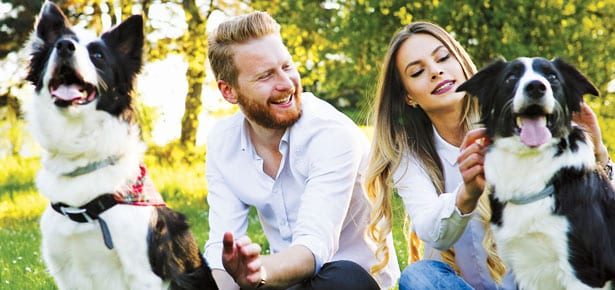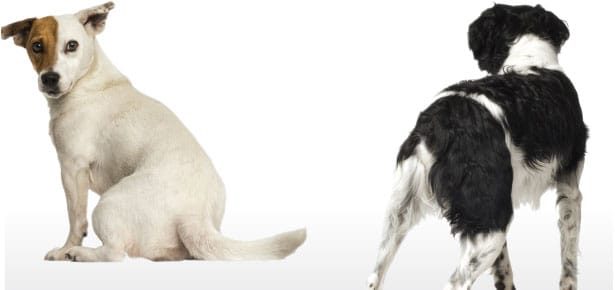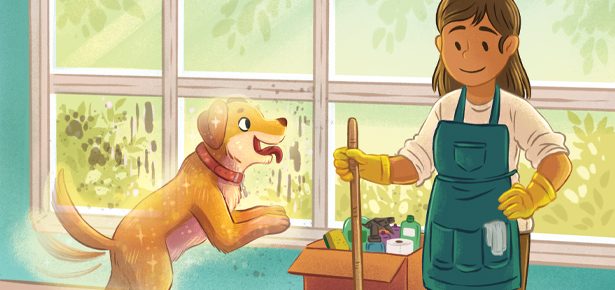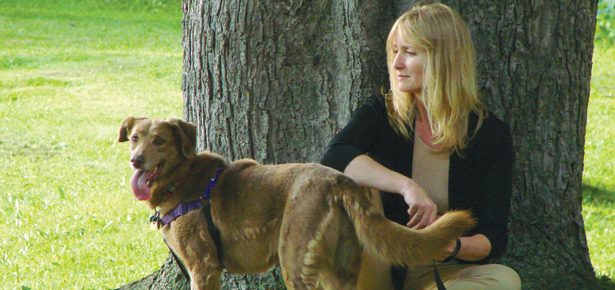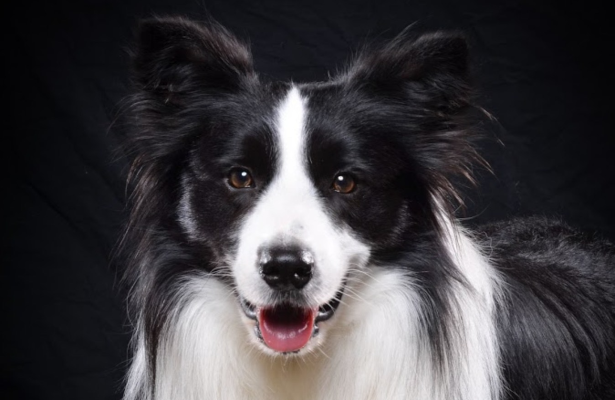

Dog People vs Cat People: The Personality Differences Are Real
A study exposes the differences between dog lovers and cat lovers
I was having coffee with a friend of mine who is a professor of psychology. As we chatted, he brought up the fact that he had broken off his relationship with a woman he had been seeing. “I’m a dog person and she’s a cat person, and they don’t mix well,” he explained. “We’re really like the animals that we love. Dogs have families and are grateful for what they get, while cats simply expect to be taken care of and show no evidence of thankfulness and loyalty.”
My friend’s comments seem to reflect a common perception, according to a study conducted at Ball State University. Pet owners were surveyed about their personalities and their pet ownership. In general, the results showed that people believe that their own personalities are similar to those of the pets they keep. Cat owners saw themselves as being more independent while dog owners described themselves as being friendly.
Virtually any discussion among pet owners is bound to reveal clearly that there are dog people and there are cat people. In some cases, the depth of feeling for their chosen species can be quite intense. However, according to an Associated Press/Petside.com poll, there are a lot more dog people out there; 74 percent of the test sample like dogs a lot, while only 41 percent like cats a lot.
It also seems that some people seem to be quite exclusive in their preferences, liking either dogs or cats and loathing the other species. Cats appear to be much easier to hate: 15 percent of the adults questioned said they disliked cats a lot while the number who said they disliked dogs a lot was only 2 percent.
There are sound reasons to suspect that the preference for dogs or cats reflects some underlying human personality differences. Certainly the relationship between cats and humans has always been quite different than the relationship between dogs and people. This reflects the behaviours that both species have kept from their heritage prior to domestication.
In the wild, cats are usually solitary hunters and often are active mostly at night. Juliet Clutton-Brock of the Natural History Museum in London calls the cat an “exploited captive” rather than a domesticated animal. Cats are the least tame of our household pets but are surprisingly successful for a species that retains so much of its wildness.
In contrast, wild canines are usually sociable pack animals that work in groups and are active between dawn and dusk. Our domestic dogs retain this need for social interaction to the degree that without a master and a family, a dog seems unhappy—almost lost.
Dogs will intrude on a person’s ongoing activities if they are feeling lonely and want some company or play. Cats, on the other hand, are often invisible during the day, seeming only to appear in the evening, especially if that is when they are fed. Cats will occasionally engage in social activities or play with people, but their interest is limited. Usually, after only a few minutes, cats will abandon the game and wander away. Dogs on the other hand, will often engage in play, like fetching a thrown ball, for hours at a time, and it is usually the human that quits the game first.
Recently, Sam Gosling, a psychologist at the University of Texas in Austin and his graduate student, Carson Sandy, conducted a web-based study in which 4,565 individuals were asked whether they were dog people, cat people, neither, or both. The same group was given a 44-item assessment that measured them on the so-called Big Five personality dimensions psychologists often use to study personalities.
Just on the basis of the nature of dogs being more sociable than cats, one might expect that the personalities of dog lovers would also reflect higher sociability. The results showed that dog people were generally about 15 percent more extroverted and 13 percent more agreeable, both of which dimensions are associated with social orientation. In addition, dog people were 11 percent more conscientious than cat people. “Conscientiousness” is a tendency to show self-discipline, to complete tasks, and aim for achievement. The trait shows a preference for planned rather than spontaneous behavior.
In comparison, cat people were generally about 12 percent more neurotic; however, they were also 11 percent more “open” than dog people. The openness trait involves a general appreciation for art, emotion, adventure, unusual ideas, imagination, curiosity, and variety of experience. People high on openness are more likely to hold unconventional beliefs while people with low scores on openness (dog people) tend to have more conventional, traditional interests.
Gosling’s recent study seems to confirm the findings of research that I did for my book Why We Love The Dogs We Do (Free Press; 1998). I used a different personality measure, namely the Interpersonal Adjective Scale, because I was mainly interested in items reflecting social interactions and social tendencies. It gives scores on four scales; extroversion, dominance, trust, and warmth (which is close to “agreeableness” on Gosling’s measure).
My study involved 6,149 people, aged 16 to 94. I attempted to get as many dog owners as I could, so this group included 3,362 dog owners, but also, 1,223 people who only owned cats and 1,564 people that owned neither a cat nor a dog.
My results showed that people who owned only cats seemed to be somewhat different than dog owners or people who owned both dogs and cats in terms of their personalities. People who own both dogs and cats seem to be much like people who own only dogs. You should keep this in mind, since from here on, at least for the purposes of this discussion, when I mention a cat owner I mean someone who lives only with a cat, while, when I mention dog owners, I mean a person who owns a dog or both a dog and a cat.
According to my data, cat owners were one third more likely to live alone than dog owners and twice as likely to live in an apartment or flat. Being married, living in a house, and having children living in the home, are all factors that are more likely for dog owners than cat owners. A single woman was the most likely individual to have a cat. Of the people who grew up in a house with cats as pets, 47 percent were likely to have cats today, while only 11 percent of people whose childhood years were spent in a house with a dog have only a cat as a pet.
Turning to the personality profile of the person who owns only cats, we find a reasonable overlap with Gosling’s recent findings. To begin with, we find that people who own only cats tend to be relatively introverted (low on extroversion) and also reasonably cool (low in warmth or agreeableness) which is the pattern confirmed by Gosling’s more recent data.
Looking at the other two measures, we find that cat owners are relatively low in dominance. People who are high on dominance are generally described as being forceful, assertive, persistent, selfassured, and self-confident. They are the people who stand out in social gatherings as opposed to people who are low in dominance that come across as being more timid, bashful, shy, and unaggressive. The final dimension that I looked at was trust, and cat owners appear to be fairly trusting. People high on this dimension are often described as obliging, modest, straightforward, and “good sports.” People low on this dimension can be more suspicious and manipulative.
The general pattern that comes out of both studies is that dog owners are more social, interactive and accepting. One dog person’s explanation of this was: “You have to have a good sense of humor to successfully own dogs.” Contrast this to cat owners (remember this is people who prefer cats exclusively) who are more introverted, self-contained, and interact less socially. A psychologist who is also a dog owner suggested, “Maybe the reason that cat people tend to be more introverted and seem to prefer to be indoors is because they can’t walk their cat.”
Perhaps one of the most telling differences between dog and cat owners is illustrated in a single comparison. I asked people who own only cats, “If you had adequate living space and there were no objections from other people in your life, and someone gave you a puppy as a gift, would you keep it?” More than two thirds of the cat owners (68 percent) said that they would not accept a dog as a pet, while almost the same number of dog owners (70 percent), said that they would admit the cat into their household when asked the same question but about a kitten. This suggests that most people who own only a dog are potentially dog and cat owners, while most people who own only a cat are exclusively cat owners.
My friend sipped on his cup of coffee and continued to muse about the differences between dog people and cat people, and perhaps about his recently ended relationship.
“You know there is some research data that suggests that more cat people than dog people are atheists. You couldn’t tell this based on my experience, which is that cat people seem to worship their felines like the ancient Egyptians worshiped their pharaohs—as gods. We dog lovers just talk to our hounds like people.”
Click here to check out some celebrity cat lovers, or here to check out celebrity dog lovers.
Join the newsletter and never miss out on dog content again!
"*" indicates required fields
By clicking the arrow, you agree to our web Terms of Use and Privacy & Cookie Policy. Easy unsubscribe links are provided in every email.
